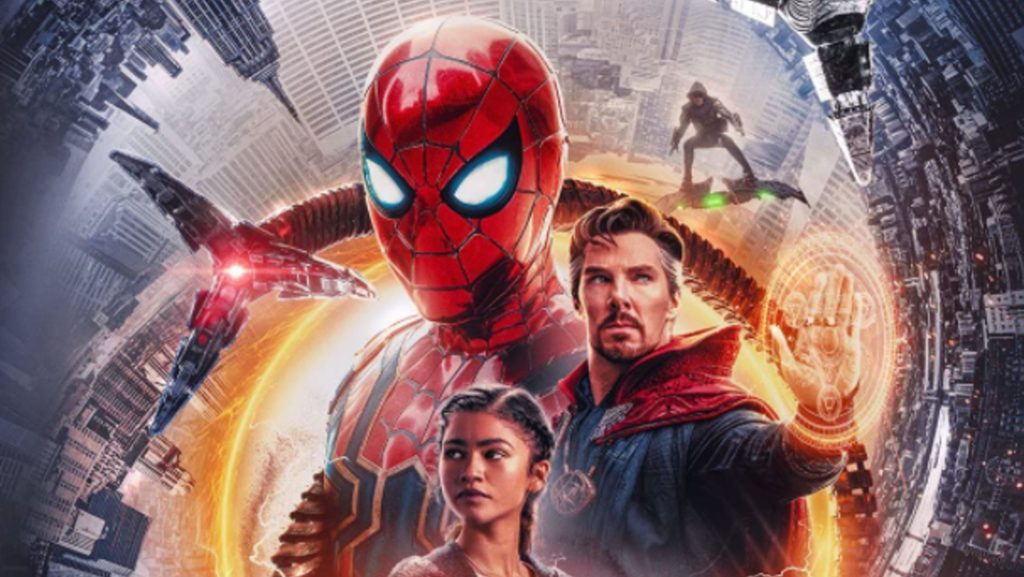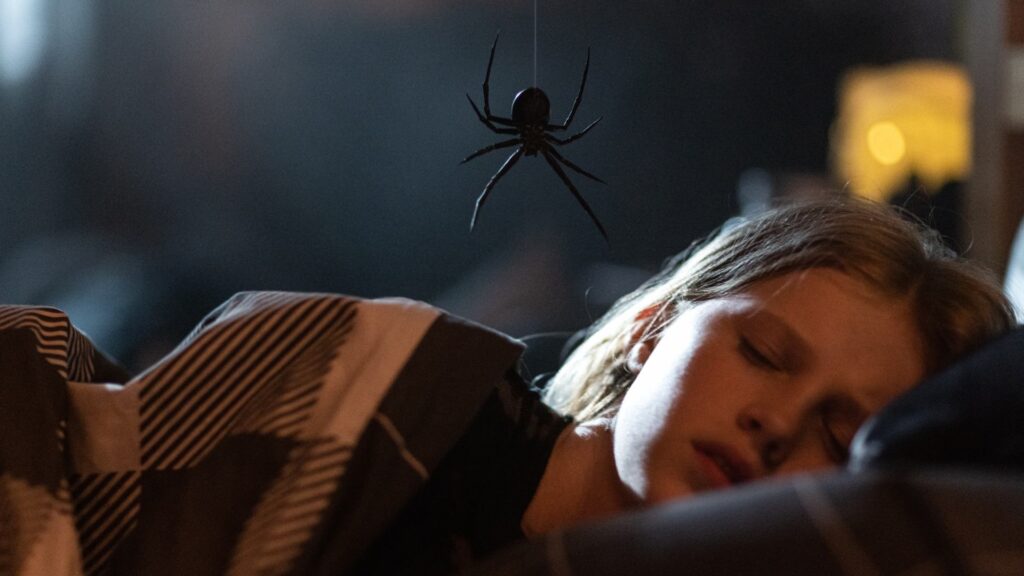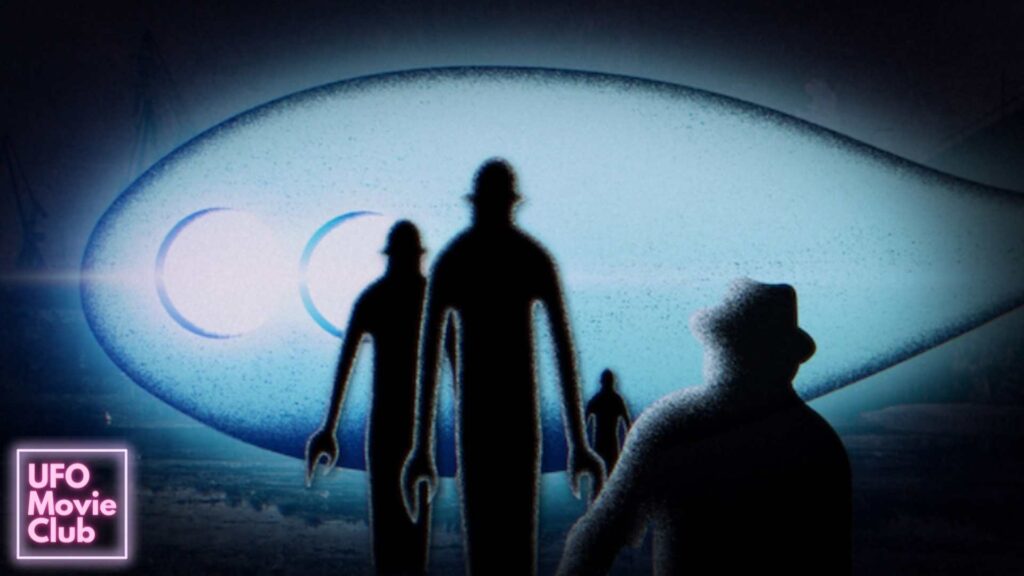I’m just going to come out and say it. Spider-Man: No Way Home is the greatest live-action Spider-Man movie of all time.
Director Jon Watts delivers all the action, drama, and laughs we expect from a Spider-Man film while taking the superhero genre in a bold new direction. Spider-Man: No Way Home is a pulse-pounding action flick that dares to ask the question, what if you’ve been watching superhero movies the wrong way?
Look, spoilers are tied into discussions about this movie the way those thin black spiderwebs are stitched onto Spidey’s classic costume. If you’re someone who reads movie reviews, I suspect you’re savvy to No Way Home’s “surprises,” but I’ll still do my best to keep things as vague as the trailers.
No Way Home picks up moments after Far From Home’s heart-stopping reveal. Defeated and knocking on death’s door, Mysterio (Jake Gyllenhaal) reveals Spider-Man’s secret identity while framing Peter Parker (Tom Holland) for his murder. And faster than you can say TikTok, the world shows up at Peter’s doorstep looking for answers.
Spider-Man: No Way Home Video Review
The Fox News-ified media descends on the story, painting Spidey as a reckless public menace. Friends and foes come out of the woodwork with their hot takes on Peter’s crimefighting.
While Peter struggles to avoid criminal charges, his family and friends get pilloried on TV and social media. With the weight of the world bearing down on him, Peter desperately turns to fellow Avenger Doctor Strange (Benedict Cumberbatch) for magical intervention.
Strange casts a spell to make the world forget Spider-Man’s secret identity, but the plan goes awry, tearing a hole in the multiverse. Several classic Spidey villains arrive from alternate dimensions seeking revenge on Ol’ Web-head. It’s up to Spider-Man and his “amazing friends” to stop this rogues’ gallery before they destroy everything Peter holds dear.
Tom Holland’s Peter Parker is now the heart and soul of the MCU. He became a fan favourite the moment he web-slinged his way into Captain America: Civil War. And as a fan of Marvel’s Spider-Man movies, I’ll be the first to admit the MCU did a piss-poor job making this Peter Parker feel like his comic book counterpart until No Way Home.
Since his first appearance in Amazing Fantasy back in 1962, Peter Parker has always been a lovable loser. In his best comic runs, Spider-Man might win the battle, but Peter Parker, the kid in the costume, always feels like he’s losing the war.
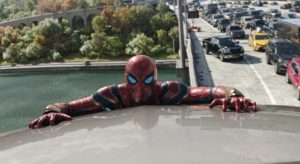
Sam Raimi’s Spider-Man movies did an excellent job of recreating this dichotomy. But it always felt like the MCU’s writers were pulling their punches, concerned with upsetting fans with an authentic Spider-Man story. MCU Peter has his share of problems, but he’s still an aberration in the Spider-Man canon. His troubles feel minor compared to what the character has dealt with in comics, movies, and video games.
Holland’s Peter is a devilishly handsome young man who dates the girl of his dreams in Homecoming and Far From Home. This version of Peter also has a father figure in Tony Stark who offers guidance early in his crimefighting career while also hooking him up with Iron Man tech. The MCU’s Peter is also an Avenger, which is like being in the Beatles of superhero teams. Traditionally, young Peter should be crossing paths with people like Luke Cage and the Kingpin – not Thanos.
This time out, Marvel finally embraces Peter’s sad-sack quality. No Way Home forces Peter to pay the price for being a hero, and it’s a better film for it. Seeing Peter struggle and fail only makes us love him more as he perseveres. Understanding what he’s willing to sacrifice to save others makes his actions feel more heroic than ever.

What sets No Way Home apart from other Spider-Man flicks is its epic sense of stakes. There aren’t any Celestial beings or infinity stones in this story, but Peter’s emotional journey couldn’t be more harrowing.
Too often, we judge a film’s stakes by who lives and dies, which is a reductive way to experience a story. In Avengers: Infinity War, people argued the snap didn’t mean anything because the lost heroes would eventually come back to life in Avengers: Endgame.
Who lives and dies is less important than what drives characters to change. People may have endured the snap, but consider how this catastrophe changed the survivors. Hawkeye (Jeremy Renner) went on an actual murder spree, Thor (Chris Hemsworth) drank himself into oblivion, and Tony self-isolated, depriving the world of his genius.
These characters survived, sure. But were they truly living? The snap didn’t kill them, but it destroyed their spirits, transforming them into lesser versions of the heroes we’ve come to love. Even though they lived, they still lost. That’s what we call game-changing stakes.

No Way Home puts Peter in a series of no-win situations where the physical and emotional stakes make for some explosive drama. But what takes the story to the next level is what it has to say about comic book films and what it means to be a hero.
No Way Home interrogates our black and white notions of good and evil and ponders what transforms people into villains. The film also asks viewers to consider why they enjoy seeing mentally unstable people get punished.
We cheer on Batman as he beats up drug addicts and thieves in Gotham’s poorest neighbourhoods. But we would lose our minds if we saw camera phone footage of a cop pummeling a suspect. Why do we give people a pass if they wear tights and a mask? Why has it taken us so long to ask ourselves this question?

You might think I’m being ultra woke, chastising something as innocuous as superhero flicks. However, think about how long it took people to take issue with Westerns’ dehumanizing depictions of Native Americans.
At what point did society notice white saviour movies are problematic? Consider how films like The Dark Knight, Silence of the Lambs, and Halloween weaponize mental illness to instill fear in viewers. These films reinforced harmful stereotypes for decades and we’re only starting to reckon with this trope.
Spider-Man No Way Home is a top-tier MCU film that’s in the conversation with Into the Spider-Verse for best Spider-Man movie. No Way Home beautifully captures the essence of the character while serving up mind-melting action and wrenching emotional beats.
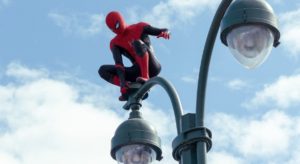
I want to write a 2000 word essay discussing the story’s intriguing themes. I could go on and on about the psychedelic Doctor Strange chase sequence that is better than any setpiece in Doctor Strange’s own movie. No Way Home delivers everything you want from a Marvel epic and then some. It’s cheekily self-aware, unapologetically heartfelt, and thrilling from start to finish.
Holland’s Spider-Man puts the hero in superhero movie, setting a bold new precedent for comic book films from here on out.

Let me know your thoughts about Spider-Man: No Way Home on Twitter and in the comments below. If you enjoyed this review, please help out the site by sharing it on social media. And keep coming back to VSR for new reviews, interviews, and videos.
